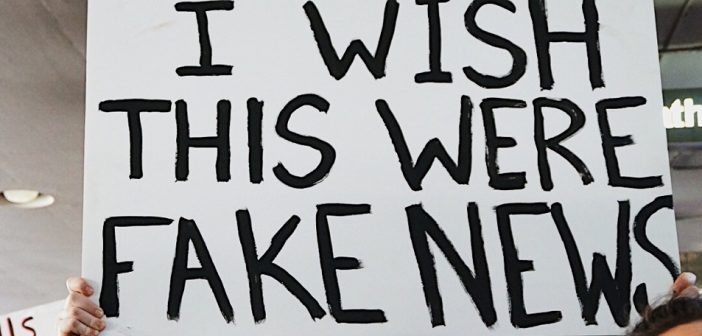Even as we come to terms with the increasing presence of fake news in the political landscape, we need to consider the vulnerability of companies, brands and employees to the same phenomenon. Social media across all channels have become an accelerator to enable unverified, and unverifiable, claims to travel far and fast.
Fake news is nothing new
The quote “Reports of my death have been greatly exaggerated” is often attributed to Mark Twain. It may be apocryphal, but it is certainly true that his death was reported in the US in 1897, while he was visiting London and very much alive. But while there is nothing new about fake news, the deliberate spreading of fake news is different, as is the fact that social media allows it to spread far and fast.
Fake news is often political and malicious, and can be a serious threat
Fake news first sprang to public attention during the 2016 US election. It has also, however, played a part in recent Kenyan elections, and been cited as an issue in unrest in Qatar. Commentators have suggested that fake news even poses a threat to international security, if it is used to destabilise governments or regions.
Fake news can be linked to advertising revenues
It is a mistake to think that fake news is always about big issues like winning elections, or that it is invariably malicious. Instead, it may be related to the need to attract viewers to a webpage and so generate advertising revenue. Although it can be damaging to the individuals or institutions mentioned, this is often not its intent.
Should we consider “spinning” an article to be fake news?
Beware: the concerns about fake news have grown so large that anyone who has ever published a press release or blog article could well be considered guilty of fake news. If you have ever “spun” a story so that it supports the point you want to make, then this could be you.
“Spinning” can be damaging
Exaggerating claims can lead to people taking unnecessary and even dangerous steps. For example, a scientific study may suggest that there is a link between a certain medication and cancer. It is only a link, but in search of a good headline, news sites may report that the medication causes cancer. Users of the medication may then decide to stop taking it, and perhaps put their health at risk. Responsible reporting and writing means choosing reliable sources, and reporting accurately.
Artificial intelligence allows the creation of convincing audio and video fake news
Techniques involving neural networks have been used to create fairly convincing video footage of events that never happened. This is important because people generally find video and audio footage more convincing than writing. However, if video and audio can be faked, then it becomes much harder to identify and discard fake news.
Tackling fake news is becoming a major global issue
Most people are probably aware of Facebook’s publication of tips to help its users spot fake news. Even if you missed it on Facebook itself, it was widely publicised via the mainstream media. Awareness of the need to tackle fake news, however, has spread far beyond Facebook, for example, to the Philippines, where a conference in Cebu will shortly discuss the issue.
The social networks are being forced to take action
If Facebook’s useful tips were widely publicised, they were also widely ridiculed. Now, however, social networks are fighting back. Facebook, for example, has taken steps to ensure that organisations consistently sharing false news will no longer be allowed to advertise on its site.
Government action may be necessary
If social media sites cannot police themselves, the thinking goes, then governments need to do it for them. Alternatively, perhaps regulators should impose penalties on sites that allow fake news to spread? Either way, the idea is to ensure that fake news is rapidly identified and removed.
A more effective option to tackle fake news may be to publish more perspectives
It is hard to keep up with fake news. Some news outlets, therefore, are taking a different approach. Instead of trying to identify false information, Facebook is surrounding all news, fake or otherwise, with related stories. This offers readers alternative perspectives on a story, and helps to develop their critical thinking and ability to spot fake news for themselves. Better recommendation engine algorithms have a role to play here.



1 Comment
My take on this is that there are two distinct groups of people/organizations disseminating fake news:
1) Masterminds: people/organizations who are knowingly fabricate and spread false information (aka fake news) to manipulate public opinion;
2) Agents: people/organizations who are readily spread fake news because it fits their political agenda, without maliciously fabricating them.